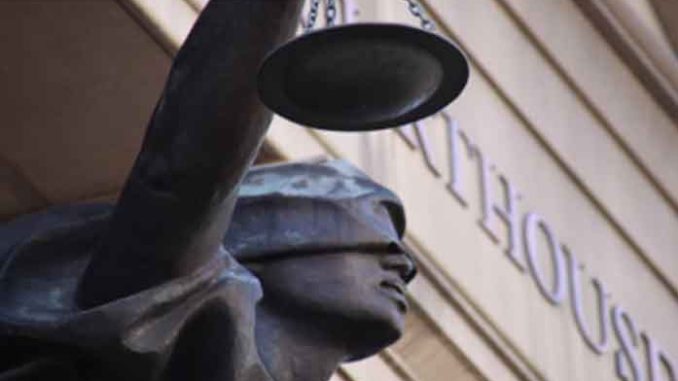
A man who unsuccessfully sued the City of Tucson for severe burns suffered to his face and body when officers held him on the hot asphalt in 2014 is entitled to a new trial due to “irregularities” which unfairly prejudiced the jury’s verdict in favor of the city, the Arizona Court of Appeals has ruled.
The unanimous Dec. 18 appellate decision upholds an October 2019 ruling by Judge Charles Harrington of the Pima County Superior Court granting Samuel Paz a new trial. The order for a new jury trial will not take affect for 30 days, giving the city time to petition the Arizona Supreme Court for review.
Court records show TPD officers responded to a “check the welfare” call in June 2014 after Paz was seen without any clothes from the waist down near a public park and a middle school in downtown. He had also relieved himself in public, was flailing his arms about as he walked in an alleyway, and appeared intoxicated.
Paz did not act in a hostile or combative manner when officers arrived, but he pushed one and tried to run away when they attempted to detain him, according to the police report. He was eventually taken to the ground, where he “suffered first- and second-degree burns to his body and face from being held down on the hot asphalt while the officers handcuffed him,” court records show.
A year later Paz filed a lawsuit against the city for negligence, claiming he had been experiencing an acute psychiatric episode when the officers approached him, and that their actions left him with permanent scarring on his face, arms, and legs. Paz also alleged the officers engaged in assault and battery.
Harrington dismissed Paz’s negligence claims against the officers before trial but left the assault and battery claim to be decided by a jury. Then during the trial the City conceded its officers engaged in “several assaults and batteries” against Paz but contended the actions were justified.
The justification claim required jurors to determine if a “reasonable person” believed the use of physical force against Paz was “immediately necessary to effect the arrest or detention or prevent the escape,” and if so, whether a reasonable person believed the arrest or detention to be lawful. The jury’s verdict was 7 to 1 in favor of the City of Tucson.
However, a few weeks later Harrington ordered a new trial because the city’s attorney violated a court order by soliciting testimony in front of the jury about a drug screening test conducted when Paz was hospitalized following the incident with TPD officers. The judge previously ordered the parties to not bring up the drug test “unless and until you get permission from the Court,” something the city’s attorney did not do before mentioning it.
The test simply indicated some drugs were in Paz’s system, but Harrington noted it did not provide a quantitative amount of any drugs present nor indicate whether the drugs were present at a level sufficient to affect Paz’s behavior. There was also no evidence the officers knew at the time of their interaction with Paz that he was under the influence of any drugs.
Bringing up the screening test under those circumstances was prejudicial to Paz and thus grounds for a new trial, Harrington ruled. And the Court of Appeals agreed.
“The trial judge is in the best position to assess prejudice because he has ‘had the unique opportunity to hear the testimony and argument, observe its effect on the jury, and determine through his observations that the trial ha[s] been unfairly compromised,’” the appellate decision states. “We have no basis to conclude that the trial court in this case abused its discretion in finding the City’s violation of its order prejudiced Paz.”
Any new trial will likely take several months to get on the calendar due to COVID-19 restrictions in the courthouse.
